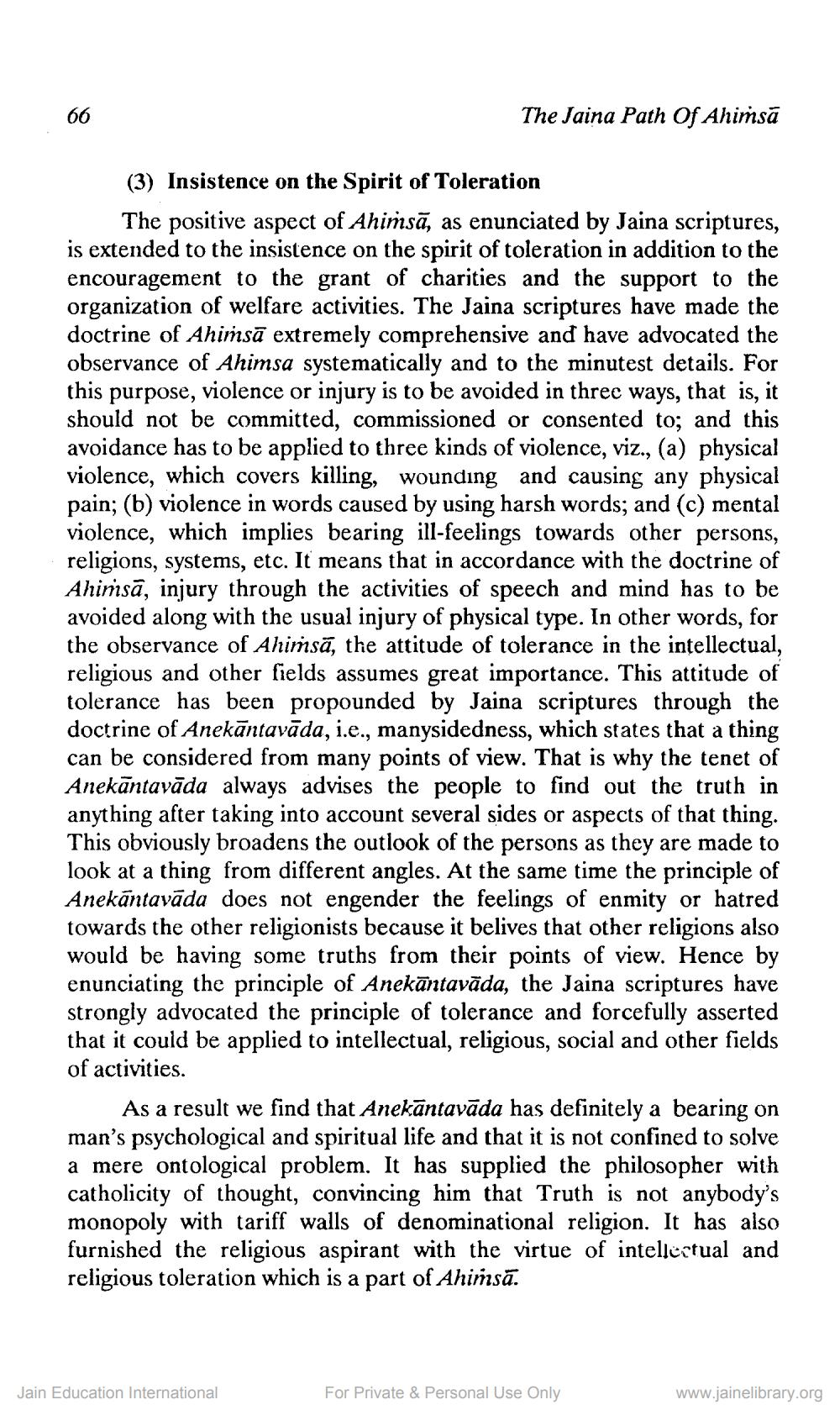________________
66
The Jaina Path Of Ahimsa
(3) Insistence on the Spirit of Toleration
The positive aspect of Ahimsa, as enunciated by Jaina scriptures, is extended to the insistence on the spirit of toleration in addition to the encouragement to the grant of charities and the support to the organization of welfare activities. The Jaina scriptures have made the doctrine of Ahiṁsā extremely comprehensive and have advocated the observance of Ahimsa systematically and to the minutest details. For this purpose, violence or injury is to be avoided in three ways, that is, it should not be committed, commissioned or consented to; and this avoidance has to be applied to three kinds of violence, viz., (a) physical violence, which covers killing, wounding and causing any physical pain; (b) violence in words caused by using harsh words; and (c) mental violence, which implies bearing ill-feelings towards other persons, religions, systems, etc. It means that in accordance with the doctrine of Ahimsa, injury through the activities of speech and mind has to be avoided along with the usual injury of physical type. In other words, for the observance of Ahimsā, the attitude of tolerance in the intellectual, religious and other fields assumes great importance. This attitude of tolerance has been propounded by Jaina scriptures through the doctrine of Anekāntavāda, i.e., manysidedness, which states that a thing can be considered from many points of view. That is why the tenet of Anekāntavāda always advises the people to find out the truth in anything after taking into account several sides or aspects of that thing. This obviously broadens the outlook of the persons as they are made to look at a thing from different angles. At the same time the principle of Anekāntavāda does not engender the feelings of enmity or hatred towards the other religionists because it belives that other religions also would be having some truths from their points of view. Hence by enunciating the principle of Anekāntavāda, the Jaina scriptures have strongly advocated the principle of tolerance and forcefully asserted that it could be applied to intellectual, religious, social and other fields of activities.
As a result we find that Anekantavāda has definitely a bearing on man's psychological and spiritual life and that it is not confined to solve a mere ontological problem. It has supplied the philosopher with catholicity of thought, convincing him that Truth is not anybody's monopoly with tariff walls of denominational religion. It has also furnished the religious aspirant with the virtue of intellectual and religious toleration which is a part of Ahimsā.
Jain Education International
For Private & Personal Use Only
www.jainelibrary.org




